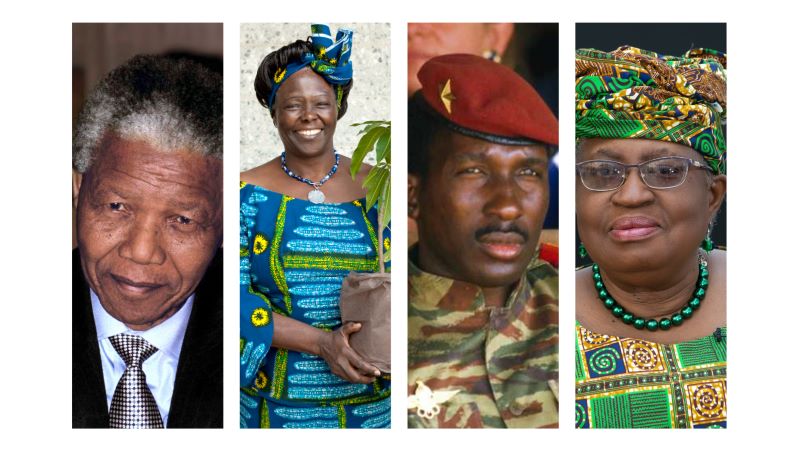Igbo Women during August meeting
Beendy234, CC BY-SA 4.0, via Wikimedia Commons
August meeting, an annual event amongst the Igbo ethnic nation in the Southeastern part of Nigeria that brings Igbo women from every corner of the world (home and abroad) back home to the community they belong to or are married into to engage in discussion and activities that would advance the interests of the community, address issues affecting individuals within the group or the collective, and further the interests of women within the community.
Historical Background
Women have always held a strong place in the Igbo socio-cultural space. As a republican society with highly decentralized systems, the Igbo ethnic nation guaranteed proper representation of every voice within its society. Decisions affecting the general interest of the community were never taken in isolation without the consensus of each representative body.
The Umuada group (daughters from the community) as a constituent unit has always wielded a sizable influence in the decision-making process in every Igbo community. This significant influence wielded by the daughters of the community gave rise to more women-led associations and gatherings which birthed the annual women’s August meeting.
As the Igbo society began to evolve and witness significant changes because of urbanization which drove migratory patterns and inter-marriages amongst communities, the need to continue leveraging women’s groups as instruments to drive social change and discuss development issues within the communities remained imperative.
The annual August meeting achieves just that as it brings together all married women from the community into what could be termed a “women’s summit” where their focus is targeted at conversations and decisions that drive social change and kickstart development initiatives that would affect women in general and the community as a whole.
Social and Historical Importance of the August Meeting
The communal nature of the Igbo society espouses that no Igbo man/woman sees themselves through the prism of individuality, in Igbo culture, the individual is just a subset of the collective whole that makes up the society or community. Issues affecting one person become the collective concern of the members of their kin as well as the community. The ideal of being “one’s brother’s keeper” is strongly entrenched in the Igbo socio-cultural structure.
As pointed out by Innocent Chukwudolue Egwutuorah in his doctoral thesis “Igbo communalism: an appraisal of Asouzu’s Ibuanyidanda philosophy “Igbo communalism is expressed in living together and sharing responsibilities. The traditional Igbo society has a great asset in its practice of a mode of life called communalism. This used to be the bedrock and the result of the wonderful relationship prevalent in the Igbo-African community as well as the purpose of the existence of the Igbo community and the Africans in general”.
It is this entrenchment of values that drives the ideals behind the annual August meeting, in this case while the general Igbo society prioritizes the general community interests, the principal focus for the August meeting is on providing a platform where all women married into the community not only congregate to itemize and address pressing issues as well as programs and initiatives that affect them both as individuals and the collective.
Every year, these meetings which usually could last up to a week would commonly start at the ward levels where women from each community is expected to meet for an assessment of the previous years concerns and initiatives, as well as come up with new ones where feasibilities of its effectiveness and strategies for its implementations are reviewed and a consensus agreement reached for final presentation to the larger body.
Ideas generated at the ward level are then collated at the larger forum where decisions on the ones that would benefit the collective whole are harmonized. In some cases, the meeting also affords members and the community access to intervention programs from state, federal, and even from diaspora which is attracted by some of its members with necessary connections.
Another cultural significance of the annual August meeting is that it affords women within the community the opportunity to discipline one of their own and also champion rights on issues affecting women. As communities continue to evolve, traditions that continue to demean the rights of women especially those implemented by the death of a spouse, domestic violence, or seizure of inheritance due to a bereaved member or any woman in the community are regularly challenged at these women’s meetings.
Proposals for review and change are not only sent to community heads or in some cases the traditional king, but these women are also willing to stage a protest to ensure that their interests are not only protected but also implemented.
In the end as Mercy Ifeyinwa Anyaegbu & Iguh Nwamaka Adaora in their work titled – Mothers’ Summit: The Igbo Women Model and a Nexus for National Development, they state that “the Igbo women have carefully designed this forum to ensure that peace and love reign in their communities and that they keep their dignity intact to give womanhood the pride of place it deserves in national integration and development”.
A Model for Developing Societies
Grassroots mobilization of women towards development initiatives both for individual and collective interests is critical for a world where opportunities are rarely available for women in developing societies.
Having women led groups that meet regularly to pursue discussions around women’s rights, education, entrepreneurship, access to financial support, and other prevailing concerns that are on the front burner of issues affecting women and take measures to redress them, would go a long way in helping women thrive and achieve all possibilities for both themselves and their communities.

Okechukwu Nzeribe works with the Onitsha Chamber of Commerce, in Anambra State, Nigeria, and loves unveiling the richness of African cultures. okechukwu.onicima@gmail.com





